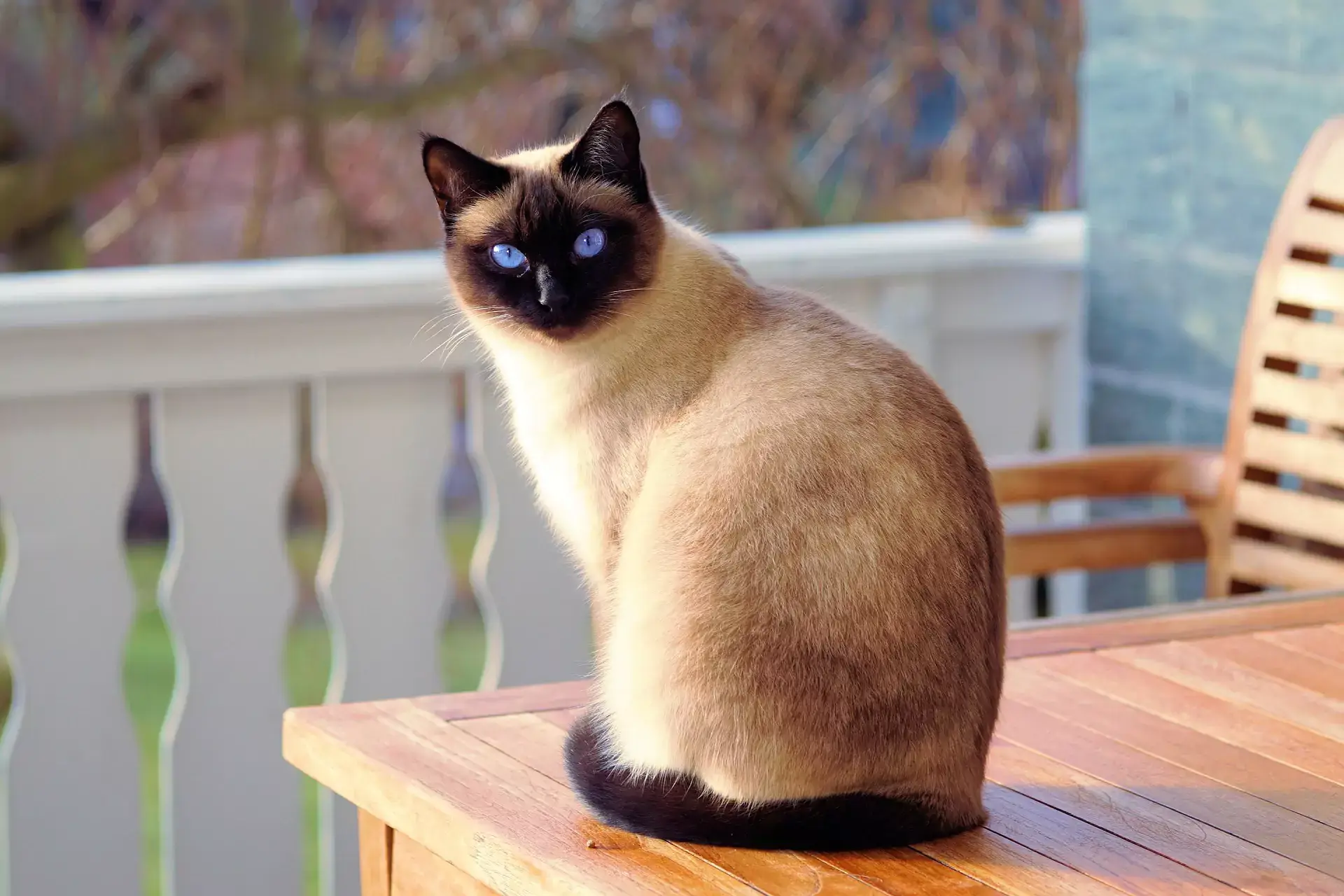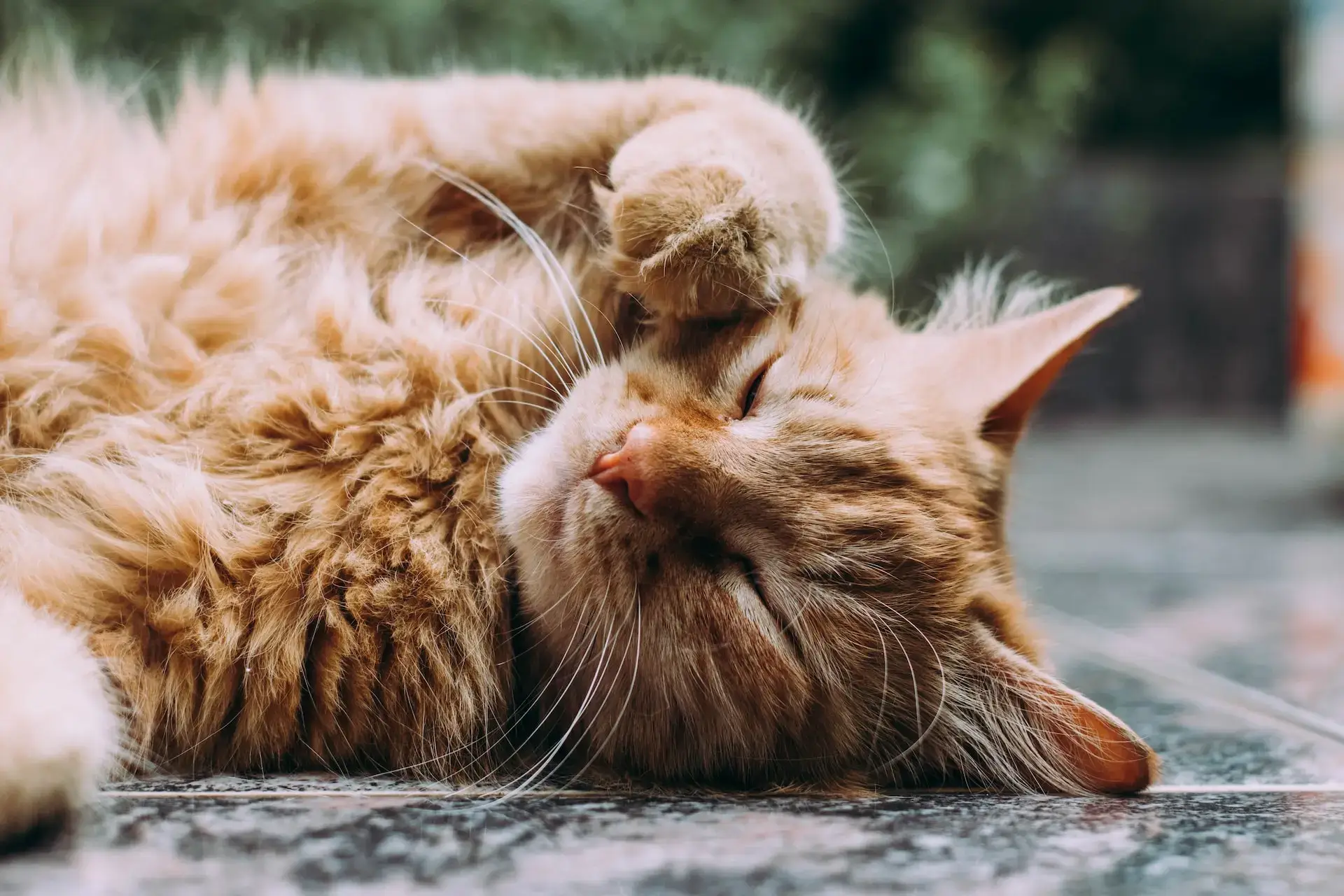You’ve heard the saying that every dog has its day. Well, we think every kitty also deserves a special day. We’re putting one very cute and mysterious cat at center stage for this one. April 23rd is Pallas Cat Day! Read on as a local vet discusses this charming (and perhaps a bit grumpy) feline.
What Is A Pallas Cat?
Pallas cats are a rather elusive, beautiful species of wild cats. They have fluffy coats, very long tails, and adorable round ears. They usually live about six years. Fluffy can have about eight kittens, on average.
The kitties are crepuscular, doing most of their ‘work’ (aka hunting) around dawn and dusk. Just like their smaller cousins, they spend the rest of their time relaxing and being cute.
Where Do Pallas Cats Live?
Also known as the Steppe Cat or Manul, this fluffy feline lives in deserts; shrublands; and ravines and slopes in rocky, mountainous regions. The kitties have been found throughout the Far and Middle East: they’ve been spotted in Tibet, Nepal, Turkmenistan, Iran, Kyrgyzstan, Kazakhstan, Bhutan, Nepal, India, Pakistan, Afghanistan, China, Mongolia, and Russia.
Why Are They Called Pallas Cats?
The kitties were named for Peter Simon Pallas. Pallas was a German botanist and naturalist who spent much of his life searching out new and unusual species of flora and fauna. He wrote a very detailed description of Fluffy, without realizing that she was an undocumented species. His work later became the basis of the official scientific records of the mysterious and anti-social kitty. He actually thought the cat was a mix between a nobleman’s pet and wild/stray cats of the area.
What Do Pallas Cats Look Like?
An official description would probably note that the cats have fluffy coats that are usually grey, silver, or brown, with markings similar to those of a snow leopard. We can also offer Pallas’ written description. He noted that Fluffy was “middle size, has somewhat smaller legs than the common cat, and the head is longer towards the nose. The tail is thrice the length of the head. The colour of the body is a light chestnut brown like that of the pole-cat, but blacker on the back, especially towards the tail, and paler along the sides and belly.”
On a less official note, we also can’t help but note that Pallas cats are absolutely adorable. They look rather wise, grumpy, and quizzical, and would definitely not be out of place in a classic child’s story or movie. In fact, Fluffy looks suspiciously like she belongs in A Neverending Story, or perhaps playing the role of a grouchy but lovable wizard’s pet.
What Do Pallas Cats Eat?
Like other felines, Fluffy is a carnivore. The Pallas cats’ diet consists mostly of small critters, particularly rodents and lagomorphs, such as gerbils, pikas, voles, mice, hamsters, and marmots, along with the occasional bird or lizard.
One interesting thing about the way these cats hunt? They ambush their prey, instead of chasing them. They also sometimes wait outside rodent burrows, and have been known to reach inside to try and grab their dinners.
Are There Any Pallas Cats In The Us?
There are no wild Pallas cats in America. (At least, none have been found.) However, there are about 50 living in zoos. In fact, a Pallas cat was just voted the second official preZOOdent of the Utica Zoo. The kitty, Tate, won with 221 out of 652 votes, knocking Mei Lin, an adorable red panda, out of office.
Can I Have A Pallas Cat As A Pet?
As tempting as it may sound to have one of these cute kitties as a pet, it’s unfortunately illegal. It’s also just not a good idea. While the Pallas cat may look quite a lot like a domestic cat, they are wild at heart and will not thrive in captivity.
Do Pallas Cats Meow?
There’s still a lot of research to be done as far as Fluffy’s vocalization patterns. While Pallas cats do make some sounds during breeding, they tend to yelp or growl, rather than meow.
Do Pallas Cats Purr?
Yup! Many of our feline friends purr. In fact, here’s an interesting tidbit on that: Cats that roar don’t purr, and cats that purr do not roar. Some of the kitties on the ‘roar’ side include the lion, tiger, and jaguar. The ‘purr’ team includes domestic cats, bobcats, cougars, and, of course, the Pallas cat.
Is The Pallas Cat Endangered?
Somewhat. Fluffy has been on the IUCN red list since 2020, but is in the group of Least Concern. Wild populations have been dwindling for some time. The cats were frequently hunted for their fur, particularly in Russia, China, and Mongolia, which took a toll on their numbers. Like many wild animals, their numbers are threatened by habitat loss and fragmentation. Rodent control programs have also added strain to the species. To make matters worse, they are difficult to breed in captivity.
The news isn’t all bad, though. Zoos in Russia, North America, Japan, and Europe have captive breeding programs. In fact, six kittens were also recently born at the Novosibirsk zoo. You can find footage of them on YouTube. (We probably don’t have to tell you how cute they are.)
What Is The Spiritual Meaning Of The Pallas Cat?
Pallas cats are natural recluses. Unlike their domestic cousins, they have no interest in teaching us to bring them treats or catnip, and actually just prefer to stay away from us in general. However, they have been known to man for thousands of years, and have found their ‘dens’ so to speak, in the oral traditions of Tibet and Mongolia. They often appear in Himalayan tribal art, and may be associated with being warm and cozy in winter. Fluffy is also sometimes depicted as a trickster. In many yak herder songs, she is seen as a spirit guarding mountain passes.
Are Pallas Cats Friendly To Humans?
Not particularly. Fluffy is a wild animal, so she tends to be naturally wary. She can also become aggressive if she feels herself or her territory is threatened. However, Pallas cats usually try to avoid humans. They are also extremely well-camouflaged, and are very hard to spot. In fact, they weren’t even photographed until 2012!
What Is The Pallas Cat’s Closest Relative?
That would be the leopard. However, the two really are just distant cousins: they jumped onto different branches of the kitty family tree about 5.2 million years ago.
How Can I See A Pallas Cat?
The only way to see one in the wild would be to come across one in their natural habitats, which are of course quite far from us. You can also visit the kitties in a zoo. Several North American zoos have them. You can of course find Fluffy online. Following the hashtag #pallascat on TikTok or YouTube will bring you to some super cute footage of these lovable felines.
How Many Pallas Cats Are There?
According to the IUCN, there are about 58,000 mature Pallas kitties left in the world. That’s not exactly red-alert territory, as far as extinction goes, but it isn’t great, either. There is some good news, though. Pallas cat sightings are on the rise in India.
Didn’t A Pallas Cat Go Viral?
Yup! You may remember this video from a few years ago. A Pallas cat that had been under observation noticed a camera outside her den. The resulting video? Comedy gold. The hilarious clip earned Fluffy the nickname of “The Angriest Cat In The World.” Some users labeled her a ‘chonky little sabertooth,’ which isn’t exactly incorrect.
Fluffy also made the news more recently. In what is an extremely unusual move for this elusive kitty, a Pallas cat and her kittens moved into a small home in the Himalayas. The humans actually moved out to allow the kitties their privacy. You can read more about that tale here.
Do you have a kitty of your own? Please feel free to contact us, your local pet hospital, for all of your cat’s veterinary care needs.



